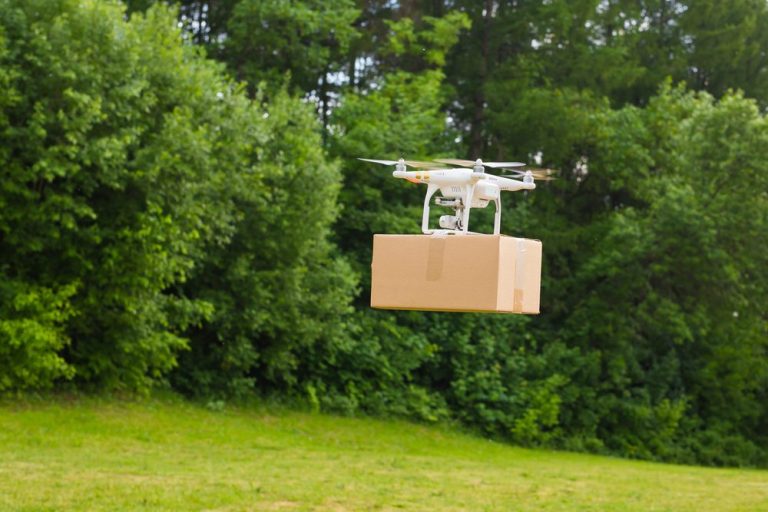
As robotics and drones get added to the tech roadmaps of retailers of every stripe, the fact remains: it’s hard creating commercial robots and autonomous vehicles, as several programs fall behind their hype, still with limited operations in rural test areas. To operationalize at scale, innovators need access to masses of data which can be hard to come by.
Enter Roboto, the robotics data startup that emerged from stealth on Thursday (April 6), equipped with $4.8 million in seed funding and the experience of co-founders Benji Barash and Yves Albers-Schoenberg, two former members of Amazon’s drone delivery division.
The pair takes a practical view of the difficulties drone and robot makers face, coming as they do from Amazon Air, the drone delivery arm of the eCommerce giant whose recent trials turned to tribulations as the decade-long development hit snags and slowdowns that culminated in widespread layoffs within its drone division, as CNBC first reported in January.
In his Thursday blog post, Roboto’s Barash said, “We’ve had an amazing front-row seat to the incredible potential of robotics, having spent our careers working at Amazon on projects such as drone delivery. However, we also learned that, despite all the recent progress, building safe and reliable autonomous systems is still surprisingly hard and very expensive. Many robots fail to graduate from prototypes in a lab to products in the real world.”
Even with household names like Walmart saying in January that it made 6,000 successful drone deliveries in 2022, and recently adding that 65% of Walmart stores will be heavily serviced by automation (that is, robotics) within three years, Barash conceded that “Robotics is hard, but it shouldn’t be this hard” adding that “We’re building Roboto to be an out-of-the-box solution to the data challenges engineers face daily and we’re excited to have the support of an incredible group of advisors and investors to make it happen. We’re building new AI-powered tools for anyone working with sensor or log data; think copilot for robotics.”
Roboto is one of several startups trying to solve drone delivery and retail robotics data barriers with its free sandbox where developers can access large datasets from outfits like nuScenes, helping robotics and autonomous vehicle makers overcome massive data challenges.
“At Amazon Robotics, we used to spend entire days writing scripts to filter and transform sensor data so that we could debug system failures, evaluate performance and create new algorithms,” Barash said. “As we scaled up our robotic fleets, the collected data became overwhelming, and we ran into a long tail of edge cases that felt like perpetual bad luck. What frustrated us the most was how long it took to get the data we needed.”
They’ve launched Roboto to be that data source in hopes of cutting development time and putting more drones and robots into action for retailers and their logistics partners faster.
Walmart’s initiative is arguably the most successful drone delivery program to date, in partnership with drone makers DroneUp, FlyTrex and Zipline. Now operating in seven states, customers can go to Droneupdelivery.com to order items from any of the 36 Walmart participating Walmart stores, as the retailer said in a January press release.
Over at Wing, the drone arm of Google parent Alphabet, in a March 31 blog post, Wing CEO Adam Woodworth spoke of testifying before the House Transportation and Infrastructure Committee’s subcommittee on Aviation, saying, “When I was asked during the hearing what is hampering the industry, I compared the current situation to being a student that’s trying to take a test without being told the subject. We’re happy to do the work and earn the grade, but right now we don’t know if we’re walking into a biology test or a spelling bee.”
Woodworth added, “The FAA is full of very intelligent, hard-working and well-intentioned people, but the current UAS approval framework produces unpredictable timelines and confusing or contradictory guidance. This is a critical moment for the industry, and that’s why I’m happy to see these discussions underway in the nation’s capital, as lawmakers work toward real progress.” Wing has partnerships with FedEx and Walgreens, among others.
Even with the fits and starts, drone delivery needs a longer runway. Market research firm Insider Intelligence said in January that “We decreased our forecast by 6% in 2021 and 10% in 2022 due to delays arising from technical challenges,” adding that “The number of delivery drone units is still small — only about 35,000 by the end of 2022 — but the growth rate is a rapid 55%. It’s still very much a niche but growing swiftly.”